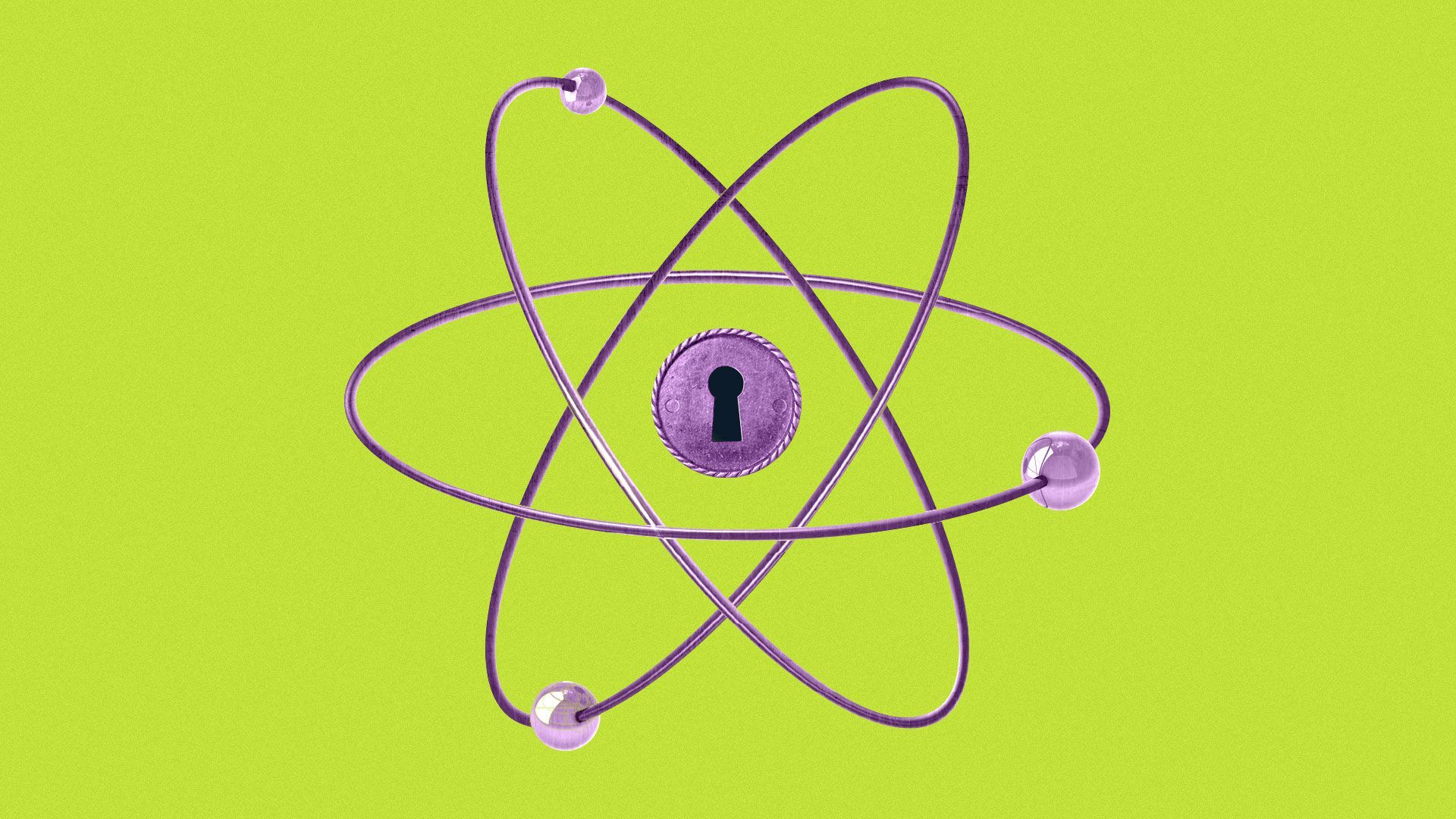Quantum computers of tomorrow could threaten today's secrets
Add Axios as your preferred source to
see more of our stories on Google.

Illustration: Eniola Odetunde/Axios
If and when quantum computers are developed, they will likely be able to break any cryptography standard in use today.
Why it matters: Governments and companies need to immediately begin future-proofing their online security against coming quantum computers, which will be exponentially faster than current technology.
A recent report from the RAND Corporation laid out a worrying scenario for governments, companies and anyone who has something they want to keep secret on the internet — which is all of us.
- Even the most secure encryption in use today could theoretically be broken by quantum computers when they're developed in the future, according to Michael Vermeer, a physical scientist at RAND and the author of the report.
- That's because quantum computers will be able to use quantum physics to solve problems classical computers never could — including math problems that underlie cryptography.
- Vermeer estimates that such quantum computers likely won't be developed for 12 years or longer, which gives governments and the private sector some time to quantum-proof their internet security.
The catch: There's a risk to waiting, however. Vermeer lays out a scenario where spies or cyber criminals today intercept messages or security credentials.
- Right now, there's nothing they can do with their catch, as current computers would be unable to break encryption. But quantum computers in the future will, and if they hold onto those intercepted messages long enough, the bad guys would be able to use their quantum computing to finally read what they caught — with potentially devastating consequences.
"It's catch now and exploit later. The costs will be less and the disruption will be less if we act on this now."— Michael Vermeer
